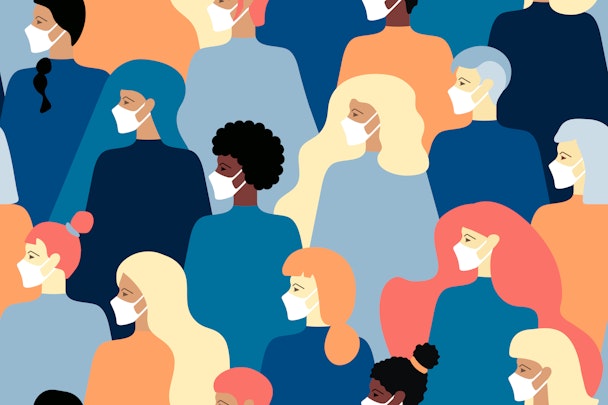Black history and how we learn from mistakes to improve medical outcomes
The history of systemic racism has resulted in a significantly lower uptake of Covid-19 vaccination among the Black community. However, this is just the tip of the iceberg when it comes to tackling deeply-rooted medical racism. Claire Gillis, chief exec at VMLY&Rx, believes that the communications industry has a role to play in tackling this serious issue, but only if it addresses its own past complicity.

Communications can play a vital role in tackling medical racism, but only if it learns from past mistakes, says Claire Gillis
If you think medical racism is just a chapter from the history books, perhaps it’s time you thought again. Racism in health isn’t yesterday’s news – it’s an everyday reality still shaming us today. We need to actively acknowledge it and work harder to find ways to build long-broken trust. Communications can play a vital role, but only if we learn from past mistakes. We haven’t yet.
Outside the US, we probably haven’t considered that the vaccine passport scheme being adopted in NY might be viewed as racist. With vaccine hesitancy known to be high among Black communities, the scheme bars anyone without proof of vaccination from basic freedoms such as eating in restaurants or going to the gym. When first introduced it meant 69% of Black New Yorkers couldn’t dine out. Boston’s mayor compared the passport to ‘slave papers’. The media labeled it ‘an awkward policy’. Others just called it straight-up racist. Though the passport is well-intentioned, equality activists are clear. Intentions in racism don’t matter. Impact does.
Black Americans attribute their mistrust of vaccines to years of systemic racism, discrimination and mistreatment in healthcare. They’re not alone. For example, Black communities have the highest rate of vaccine hesitancy in the UK too – and the root causes mirror the US.
History is littered with examples of medical racism that have laid the foundations. Exhibit A is the Tuskegee Study – a medical experiment that allowed Black American men with syphilis to go untreated for 40 years so scientists could study its effects. The scandal still reverberates today, with Tuskegee cited as one of the reasons why Black people are reluctant to participate in clinical research or even get routine check-ups.
Another is the story of Henrietta Lacks – a Black woman whose cervical cancer cells were cultured on a mass scale, prior to her death, without her knowledge or consent. The cells generated the ‘HeLa cell line’, fueling major medical breakthroughs. But the wrongs surrounding how they were collected, and the failure to acknowledge Henrietta’s contribution to science, betray racial inequalities embedded in healthcare.
Those inequalities continue today. For instance, in 2019 it emerged that decision-making software used to allocate healthcare in US hospitals included an algorithm that gave Black people lower risk scores than white people – leading to fewer medical referrals and poorer outcomes.
These examples destroy trust among Black communities. However, the biggest driver of mistrust is their everyday mistreatment in healthcare settings. When Black people go into medical offices they rarely see someone that looks like them – they see systems rooted in racial biases that exacerbate mistreatment and inevitably lead to poorer outcomes:
-
Black Americans have lower life expectancy than white Americans.
-
Black women die from pregnancy-related complications three times more often than white women.
-
Black infant mortality is two times higher than for white infants.
Since every instance of medical racism features a failure of communications, it’s incumbent on us to pull up our socks and start righting the wrongs. But there’s no overnight fix.
Trusted communications start with honest engagement. It’s about listening, learning, partnering and empowering – and allowing our audiences to help write the script. We’ve not done that enough, and we continue to make the same mistakes.
Vaccine hesitation efforts show history in danger of repeating itself. Commentators decry the absence of local leaders going into Black communities to have that conversation. That’s where we need to start – for all diseases, not just Covid.
Ultimately, Black communities want transparency. They want information they can trust from messengers they can trust. That won’t be a news outlet or the CDC. It will be a family member, a pastor or an influencer from their community. They’re our route to trusted communications.
Getting it right means doing four fundamentals:
-
Community engagement: get out in front of communities and open two-way dialog.
-
Cultural upfronts: immerse ourselves in the complex cultural make-up of communities to understand what drives behavior.
-
Connect and collaborate: partner with culture leaders to maximize influence and connections.
-
Co-create: audiences want to shape solutions and take ownership for change. We must let them.
If we’re going to consign medical racism to history, we must call it out, learn and ensure diverse communities are equal partners in the health conversation. But remember, when it comes to equality, good intentions count for nothing. Impact and outcomes are everything.
Claire Gillis is chief executive officer at VMLY&Rx.
